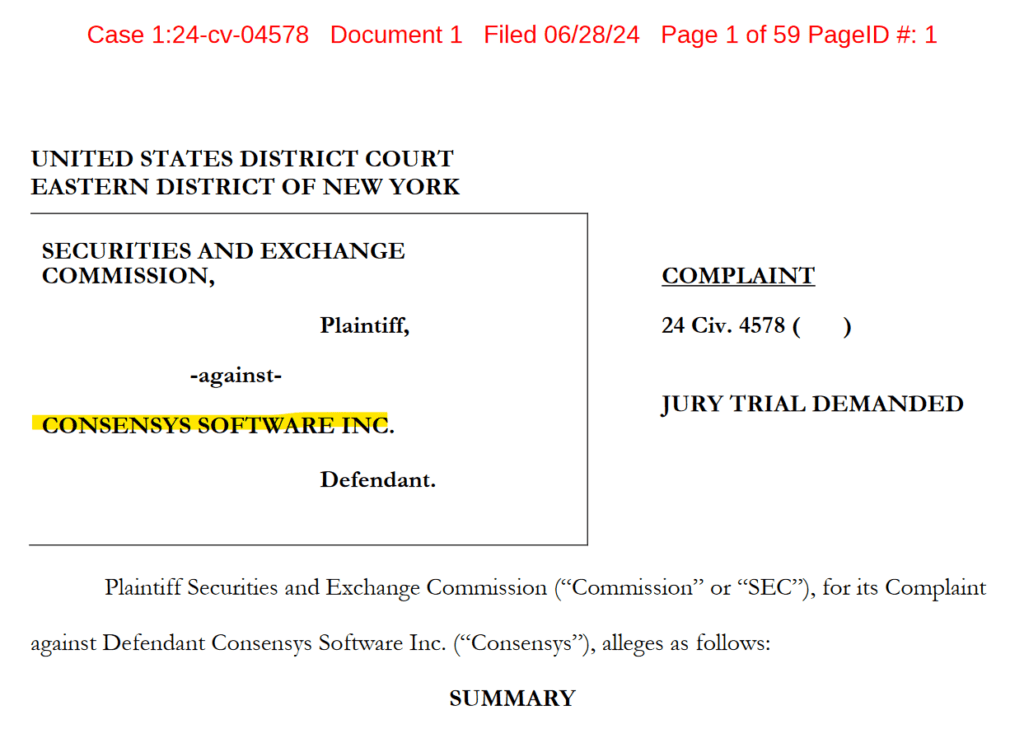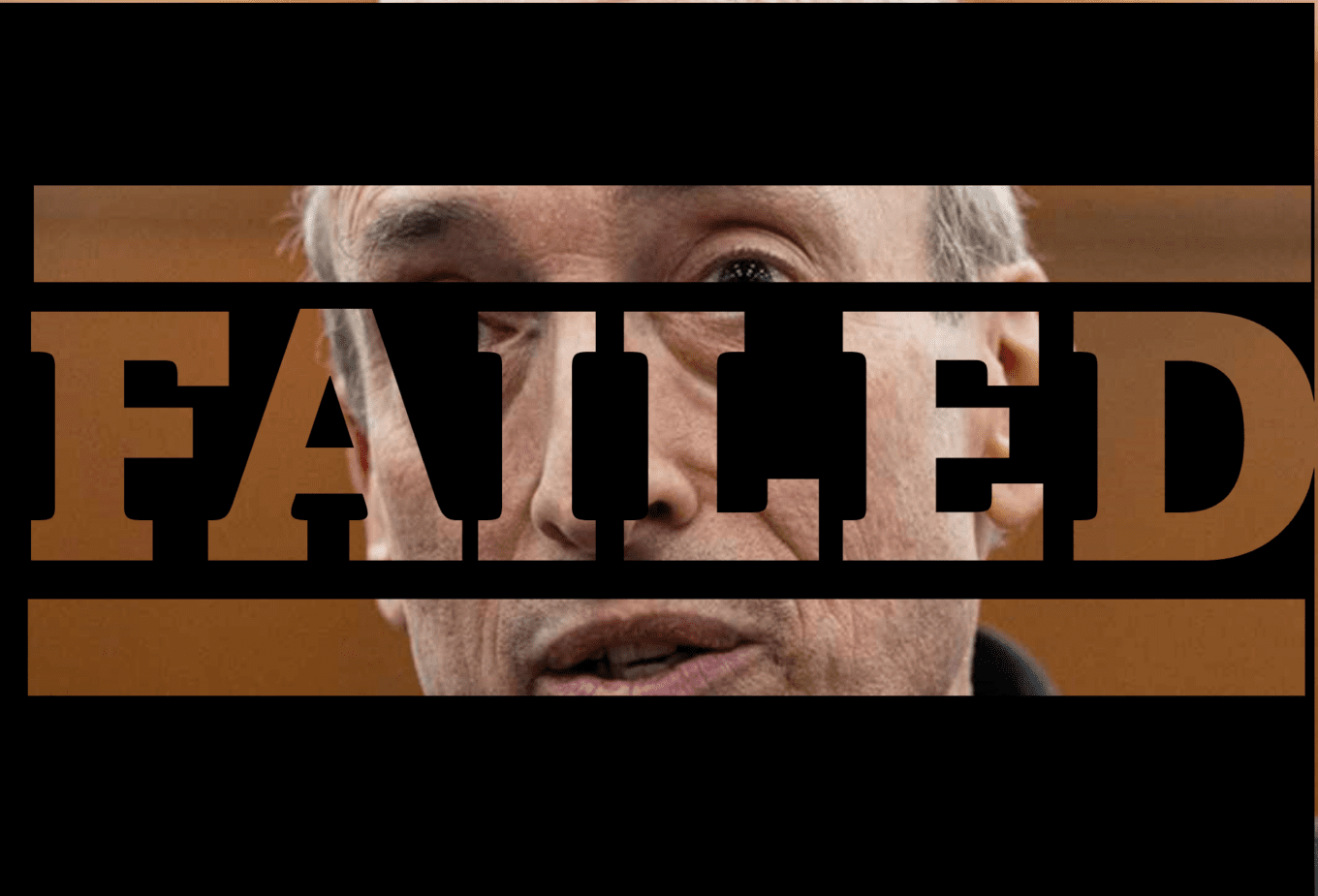Consensys Software Inc., a blockchain software company founded by Joseph Lubin in 2015, is best known for developing the MetaMask cryptocurrency wallet and Infura blockchain node infrastructure service. The U.S. Securities and Exchange Commission (SEC) has charged Consensys with the unregistered offer and sale of securities through its MetaMask Staking service and operating as an unregistered broker via MetaMask Staking and MetaMask Swaps.
Details of the Charges

Since January 2023, Consensys has allegedly facilitated the sale of unregistered securities on behalf of liquid staking program providers Lido and Rocket Pool. These providers issue liquid staking tokens (stETH and rETH) in exchange for staked assets, allowing the tokens to be bought and sold freely, unlike traditional staked tokens typically locked up. The SEC contends that Consensys participated in the distribution of these staking programs and acted as an unregistered broker for these transactions.
“By allegedly collecting hundreds of millions of dollars in fees as an unregistered broker and engaging in the unregistered offer and sale of tens of thousands of securities, Consensys inserted itself squarely into the U.S. securities markets while depriving investors of the protections afforded by the federal securities laws,” said Gurbir S. Grewal, Director of the SEC’s Division of Enforcement.
Broader Allegations
The SEC also claims that since October 2020, Consensys has brokered transactions in crypto asset securities. The company is accused of:
- Soliciting investors to trade crypto asset securities
- Providing pricing and investment information
- Claiming to offer the “best” quotes
- Accepting and routing customer orders
- Facilitating order execution
- Handling customer assets
- Receiving transaction-based compensation
Legal Proceedings
The SEC’s complaint, filed in the federal district court in the Eastern District of New York, charges Consensys with violating the registration provisions of the Securities Act of 1933 and the Securities Exchange Act of 1934. The SEC seeks injunctive relief and penalties.
The Failing Regulator
The lawsuit against Consensys highlights the SEC’s aggressive stance towards the crypto industry and underscores the criticism of “regulation through enforcement.” Under Chair Gary Gensler, the SEC has not established a tailored regulatory framework for the crypto sector, opting instead to fit it into the existing decades-old regulatory structure. In contrast, the EU has adopted a more proactive approach by developing a comprehensive regulatory framework specifically for crypto assets through the Markets in Crypto-Assets (MiCA) regulation.





